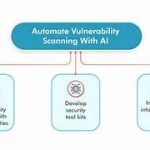Autonomous AI Agents for Penetration Testing: Redefining Cybersecurity
In the ever-evolving world of cybersecurity, traditional penetration testing methods are being redefined by the advent of artificial intelligence (AI). Among the most groundbreaking innovations is the use of autonomous AI agents for penetration testing. These agents leverage the power of AI to simulate attacks, identify vulnerabilities, and fortify digital infrastructure, presenting a promising leap forward in securing networks and systems. This article explores the role of autonomous AI agents in penetration testing, their benefits, challenges, and future potential.
Understanding Autonomous AI Agents
An autonomous AI agent is a self-operating system powered by AI algorithms, capable of performing tasks without constant human intervention. In the context of penetration testing, these agents are designed to mimic human-like hacking techniques, identify security flaws, and suggest remediation strategies. By integrating machine learning (ML), natural language processing (NLP), and decision-making capabilities, these agents can efficiently navigate complex networks and execute comprehensive testing protocols.
The Role of Autonomous AI in Penetration Testing
Penetration testing, or ethical hacking, is a proactive approach to evaluating the security of a system by simulating cyberattacks. Traditionally, this process has been labor-intensive, requiring skilled cybersecurity professionals to manually identify vulnerabilities. Autonomous AI agents streamline this process by automating several critical functions:
- Reconnaissance: AI agents can gather data about a target system or network, identifying potential entry points for exploitation.
- Exploitation: These agents can simulate real-world attack scenarios, exploiting vulnerabilities to assess their severity.
- Reporting: AI-powered systems generate detailed reports, highlighting vulnerabilities, attack paths, and recommended solutions.
- Continuous Monitoring: Unlike periodic manual testing, autonomous agents can operate continuously, ensuring real-time vulnerability detection and remediation.
Benefits of Autonomous AI Agents
1. Efficiency and Scalability
Traditional penetration testing can be time-consuming and resource-intensive, especially for large-scale networks. Autonomous AI agents operate at a significantly faster pace, handling extensive networks with minimal human oversight. Their ability to scale ensures comprehensive coverage, even in complex environments.
2. Cost-Effectiveness
Employing a team of cybersecurity professionals for manual testing can be costly. Autonomous AI agents reduce these expenses by automating routine tasks, allowing organizations to allocate resources more effectively.
3. 24/7 Availability
Cyber threats are constant, and vulnerabilities can emerge at any time. Autonomous AI agents offer continuous monitoring, ensuring that systems remain secure around the clock.
4. Advanced Threat Simulation
AI agents can simulate sophisticated attack scenarios, including zero-day exploits, ransomware attacks, and advanced persistent threats (APTs). This capability enables organizations to prepare for emerging threats that traditional methods might overlook.
5. Improved Accuracy
Human error is a common challenge in manual penetration testing. AI agents reduce this risk by adhering to predefined algorithms and data-driven decision-making processes, resulting in more accurate vulnerability detection.
Challenges and Limitations
Despite their advantages, autonomous AI agents for penetration testing are not without challenges:
1. Complexity of AI Implementation
Deploying and managing AI agents requires expertise in AI and cybersecurity, which may not be readily available in all organizations. Developing and fine-tuning these systems can be a complex process.
2. False Positives and Negatives
AI agents may sometimes misidentify vulnerabilities, either flagging benign features as threats (false positives) or failing to detect real issues (false negatives). These inaccuracies can undermine the testing process.
3. Ethical and Legal Concerns
Autonomous AI agents, if misused, could potentially conduct unauthorized penetration tests, leading to ethical and legal implications. Organizations must ensure proper oversight and compliance with regulations.
4. Adaptation to Evolving Threats
While AI agents can adapt to new attack patterns, sophisticated threat actors constantly innovate. Ensuring that AI systems remain effective against evolving threats is an ongoing challenge.
Real-World Applications and Case Studies
Several organizations have already embraced autonomous AI agents for penetration testing, demonstrating their potential:
1. Financial Institutions
Banks and financial organizations are prime targets for cyberattacks. By deploying AI agents, these institutions can simulate attacks on their systems, identify vulnerabilities, and protect sensitive data.
2. Healthcare
With the rise of telemedicine and electronic health records, healthcare providers face significant cybersecurity risks. Autonomous AI agents help safeguard patient data and ensure compliance with regulations like HIPAA.
3. Critical Infrastructure
Power grids, transportation systems, and other critical infrastructure are increasingly reliant on digital systems. AI-powered penetration testing enhances their security, mitigating the risk of catastrophic failures.
4. E-commerce
Online retailers depend on secure payment gateways and user data protection. Autonomous agents help identify vulnerabilities in these systems, ensuring a seamless and safe shopping experience for customers.
The Future of Autonomous AI in Penetration Testing
The potential of autonomous AI agents in penetration testing is immense. As AI technologies continue to advance, we can expect:
- Increased Integration with DevSecOps AI agents will become integral to the DevSecOps pipeline, enabling continuous security testing during the software development lifecycle.
- Enhanced Collaboration with Human Experts Rather than replacing cybersecurity professionals, AI agents will augment their capabilities. Human-AI collaboration will result in more robust security solutions.
- Better Customization Future AI systems will offer greater customization, allowing organizations to tailor testing protocols to their specific needs and risk profiles.
- Advancements in Explainable AI Explainable AI (XAI) will improve transparency, helping organizations understand how AI agents identify vulnerabilities and make decisions.
- Regulatory Frameworks As AI adoption grows, governments and industry bodies will establish frameworks to ensure ethical and legal use of autonomous agents in penetration testing.
Conclusion
Autonomous AI agents represent a paradigm shift in penetration testing, offering unparalleled efficiency, accuracy, and scalability. While challenges remain, the benefits they provide in safeguarding digital infrastructure are undeniable. By embracing these innovative tools, organizations can stay ahead in the ever-evolving cybersecurity landscape, protecting their assets and ensuring resilience against cyber threats.


